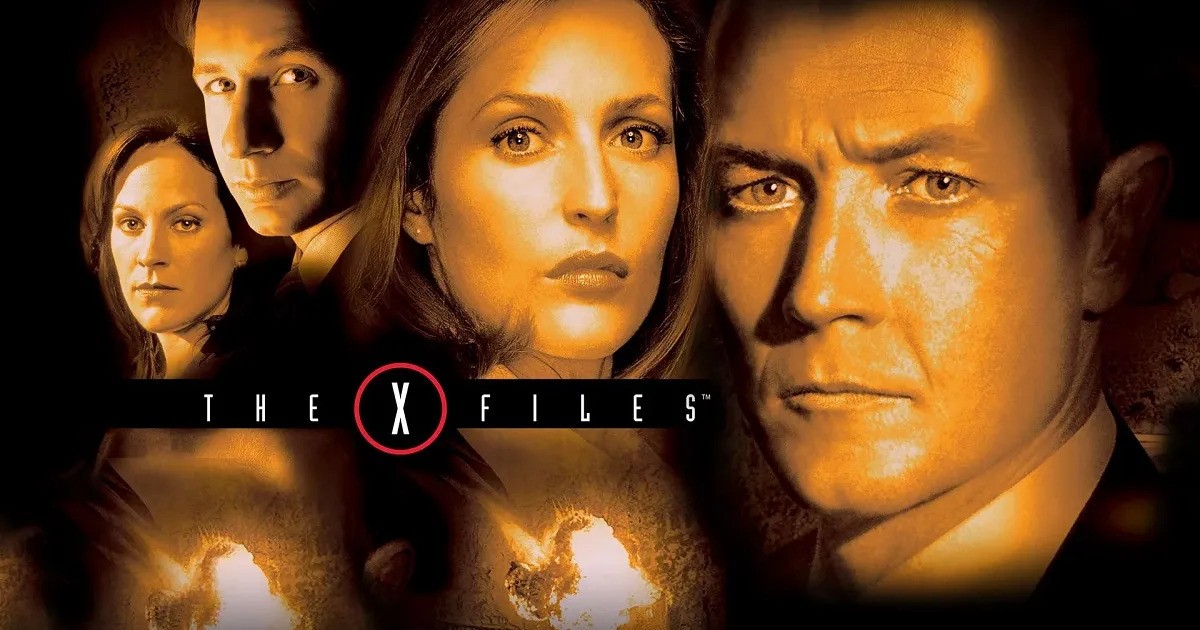How do you end a show that has long since passed its end date? It’s a question Chris Carter and his fellow writers were likely scrambling for an answer to when Fox cancelled The X-Files halfway through production of its ninth season. But the decision couldn’t have come as a big surprise. When people think of the post-Mulder era of the show and how bad it gets, it’s the ninth season they’re thinking of rather than the eighth. All the effort previously gone into revamping the show evaporates from the opening seconds of the season premiere. It’s clear immediately that the show has run its course, resigned to lamely plod along for twenty more episodes. That’s not to say every episode is awful. In fact, there’s not a truly terrible standalone episode all season, but nor is there an amazing one either. It’s a weak middling season devoid of anything. The standalone stories are tired and the mythology is an exercise in futility at this point.
The events of September 11th 2001 occurred a couple of months before the season premiered, and The X-Files, a bastion of the 1990s, seemed so outdated in the face of such an event. There was no attempt to shift to a new type of government or conspiracy story and instead the mythology was nothing but a retread of a retread. A character named ‘Toothpick Man’, who stands in the FBI offices with a toothpick, just as the Smoking Man had done with a cigarette, is perhaps the most emblematic aspect of the season’s laziness. Nobody watching cared, and it felt like nobody behind the camera did either. 24 became Fox’s hit new series, doing for the 2000s what The X-Files did for the previous decade.
The eighth season of the show worked so well by embracing its unprecedented new circumstances. The writers knew they wouldn’t have David Duchovny and that anyone brought into replace him would be hated so they built the story around that. They made a potential weakness a strength, revitalising the show’s narrative. The ninth season completely fails to do this. There is no good explanation for Mulder’s absence this season, or even Scully’s presence, considering she hangs around in a limited capacity. In the episode Trust No 1, Scully laments about Mulder: “I want to see him so bad.” The show itself wallows in the misery of not having him around, with none of the narrative or character insight of season 8, so how is the viewer expected to be happy moving forward with the new cast of Doggett and Reyes?
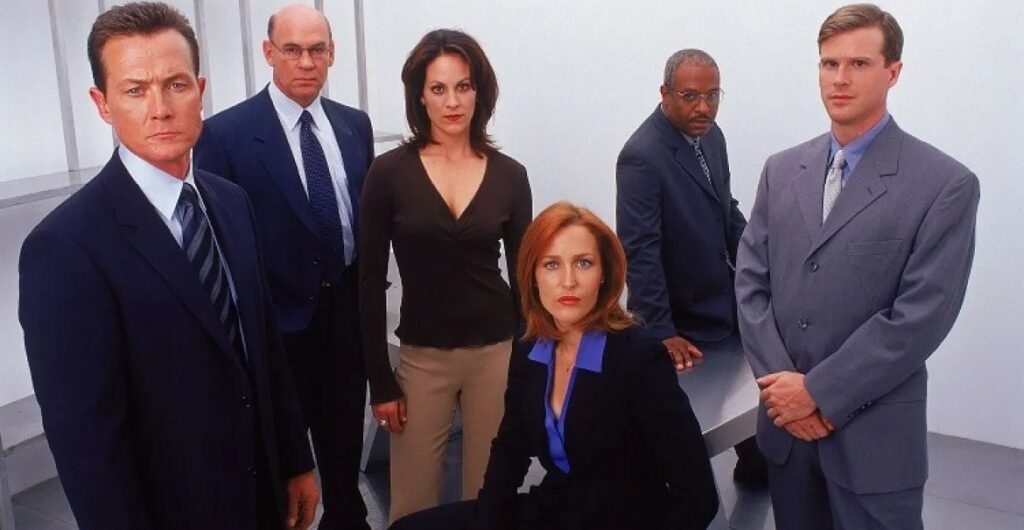
The mythology reaches new levels of stupidity. Scully’s baby William is the focus, until he’s unceremoniously written out of the show. It turns out he’s a messianic miracle child, according to a prophecy from God, aliens, or both, and he’ll either save the world or destroy it, in regards to the alien invasion (which is still coming, the writers try and convince us). Whether William is hero or villain apparently depends on Mulder’s fate: if he’s alive then William is a saviour, if dead a destroyer. It’s such a terrible reveal that I instantly tried to forget it. Thankfully I think Chris Carter had the same reaction despite writing it. Once again this puts all the emphasis on the character who is no longer part of the show rather than the actual current protagonists. And what a way to totally disregard Scully. Her being the boy’s mother is apparently irrelevant and the absent father holds all the importance.
The ninth season has a lighter tone than the preceding season, with the series beginning to do comedy episodes again. Unfortunately, the writers haven’t worked out how to make Doggett and Reyes funny. We need to understand these characters dramatically before they can work comedically. The Scully humour in these episodes is more successful than the other two. The series took two seasons for Mulder and Scully to develop to the point they could naturally star in comedy episodes without it feeling odd. The relationship between Doggett and Reyes is too undefined for good drama, and even less so for comedy. The show isn’t sure if they work well together, if they are friends, if they are romantically interested, if that love is one sided and unrequited, and by the time the characters are fleshed out enough to feel consistent and understandable, the series is over.
Best Character: John Doggett
The ninth season struggles to keep a firm grasp on any of its characters, with the show built for two leads often having to try and balance three protagonists. At times it even becomes an awkward four-hander when Skinner gets involved. Doggett and Reyes are supposedly the new leads but the show never commits to this like it needs to, keeping one foot in the past and never granting the new agents the development they deserve because Scully and Skinner are always there. No one comes out of the balancing act unscathed but Doggett at least has the great character work from season 8 to support him and he’s often the highlight of the season.
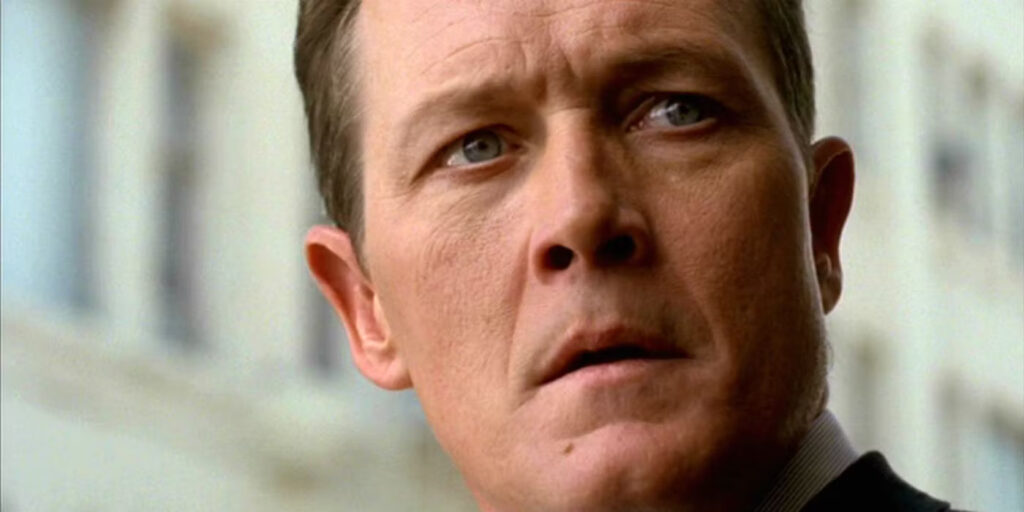
I didn’t realise until this rewatch that, while I like both Doggett and Reyes, I like them separately. They can be great as their own characters but not as partners, where they only work perfunctorily. The best episodes of the season separate them for most of the runtime. The characters were conceived separately and for different purposes in the eighth season and so they don’t fit together or contrast interestingly. A good example is Audrey Pauley, an episode which sees Reyes trapped in a realm between life and death while Doggett tries to uncover what’s happening at the hospital. They both work together to resolve the plot but they are also isolated, able to have better emotional beats when discussing one another with other characters than together. Scully meanwhile, as is the case throughout the season, doesn’t fit and damages the episode, creating drama by wanting to turn off Reyes’s life support, which makes no sense considering everything she has gone through with both herself and Mulder.
Despite good work from Annabeth Gish, Reyes never quite clicks as a character. Hellbound is an attempt to better define Reyes but her vague psychic powers make her seem like a bad agent. She turns up at a crime scene, has a vision, and then runs away, not revealing any details to anybody. Meanwhile Doggett and Scully do the actual police work, interviewing and investigating. The other FBI characters on the show have their quirks and unique perspectives and still seem like competent agents but Reyes, alternating between sleeveless jumpers and leather jackets, rarely feels like she’s law enforcement at all. She also doesn’t fit in the mythology episodes, not having a point-of-view on the conspiracy, so often takes a back seat, simply accompanying Scully as the plot happens around her.
Meanwhile, Doggett perhaps isn’t as strong as last season but the writers still understand how to utilise him. He has a distinct voice within the show. He’s tough when he needs to be but he’s also given more opportunities to be vulnerable, which Robert Patrick excels at. The death of his son still feels too much like a cliché backstory but this season deals with it better than last, with it being relevant to two of the best episodes of the season. The specifics of Luke’s death are that important, even in the convoluted episode which answers the questions surrounding it, but the emotion of it is, and that is handled very well in both John Doe and Release. Doggett is a reliable character in an unreliable season; a solid character even when the episodes around him falter.
Unpopular Opinion: Season 9 Would Have Been Better Without Scully
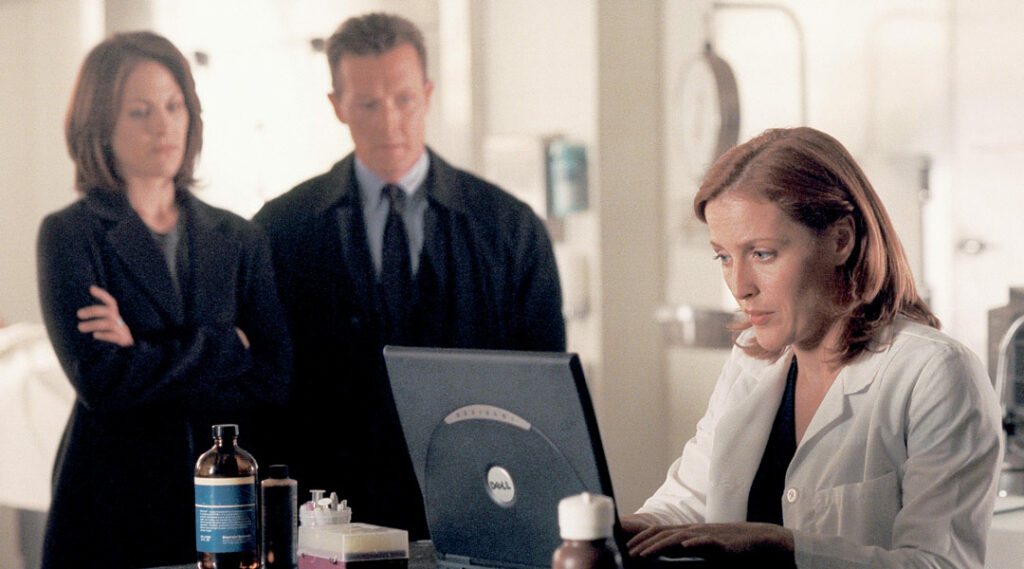
I love Scully but I honestly think this season would have been better if she wasn’t in it. There’s little storytelling with her that feels fresh and her presence damages the much needed characterisation of Doggett and Reyes, taking valuable air time away as the show juggles three leads. If Reyes had some of Scully’s scenes, interviewing people and investigating, then it would have done wonders for the perception of the character. The only aspect that makes sense for Scully is the lab and morgue work, which Doggett and Reyes are not set up for. But other than that she feels extraneous. Scully’s presence also serves as a continual reminder of Mulder, making his absence more noticeable. Gillian Anderson only agreed to be involved in the season (at the last minute) if she had a reduced role but rather cramming her into minimal scenes each episode it would have been better to give her a prominent role in fewer episodes.
The writers create multiple ways to explain Scully’s semi-absence which further begs why she appears at all. She should be on maternity leave looking after William. Then she gets a new job teaching in Quantico, which would be a great step for her if she didn’t have a baby. Both together is silly, especially with them saying she commutes between Quantico and her home in Washington. And then Scully randomly appears on cases to help out for a scene or two. The story has brought her to a point where it makes sense for her to exit the show. Scully gets a miracle child and doesn’t seem to care about it, spending no time with it. Her having a child is the same as Mulder being abducted: it’s the endgame for the characters, should be the final time we see them, but then is turned into a weak storyline when the show is unnaturally extended.
Underrated Episode: Daemonicus (S9E3)
The first standalone episode of the season feels like a holdover from season 8 in the best way possible. Daemonicus is dark and nasty in a way the rest of the season isn’t, there’s a sense of dread throughout. I don’t need The X-Files to constantly have this tone but at least the episode has a tone. The episode’s opening is really unsettling, featuring men in demon masks breaking into a house, forcing a husband to kill his wife in the dark. James Remar guest stars as a prisoner whose former cellmate and guard have escaped and are on a killing spree. Is he masterminding it from inside or psychic, able to telepathically connect with the killers and help the FBI catch them? The answer: we don’t know. It’s hard to do something different with an episode by this point in the show’s run, as most of the other episodes this season attest to. But an episode that remains ambiguous as to whether it’s paranormal or not is refreshing, and an interesting first case for Doggett and Reyes and their new believer/sceptic dynamic. The script might not be as clever as it thinks it is but Daemonicus is still one of the better instalments this season.
Best Cold Open: 4-D (S9E4)
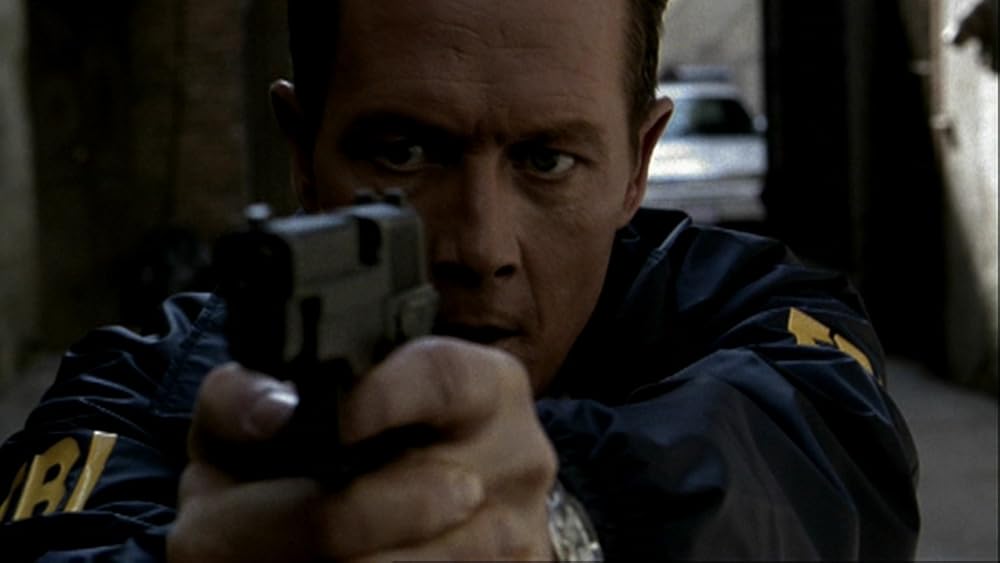
What more shocking way to begin an episode, near the beginning of the season, than killing off the two new leads of the show. Reyes’ throat is cut and Doggett is shot dead before the credits roll. Yes, obviously it’s not permanent but it’s an engaging way to begin an episode, especially with some disappearing cops and a teleporting bad guy mixed in. By this point there’s been almost 200 episodes of The X-Files and it’s become increasingly clear what the supernatural element is going to be from an episode’s opening scene because we’ve seen them all before: “oh, it’s a demon episode this week,” for example. But 4-D remains enjoyably baffling for a good chunk of its runtime. The rest of the episode sadly isn’t as strong as the beginning. It becomes too standard an investigation for a unique threat: a killer who can travel to and from a parallel universe. There’s also far too clean a reset at the end. But the opening scene is great and aided by everything looking slightly off but it not being clear why until you work out that the image is flipped in the parallel universe.
Worst Series Finale: Jump the Shark (S9E15)
Somehow The X-Files’ original final episode isn’t the worst series finale the ninth season has to offer. The show delivers a backdoor finale to spin-off The Lone Gunmen, which aired and was promptly cancelled between seasons 8 and 9. Unlike the Millennium crossover, Jump the Shark is fairly incomprehensible if you haven’t seen the spin-off, essentially being an episode of that show, yet doesn’t really resolve the cliffhanger ending or get the tone right. For a finale to a comedy show it’s a largely humourless hour of television. Jimmy Bond was a rich clown in the spin-off but here, to give it a dramatic edge, he’s now poor and depressed. Michael McKean reprising his role as Morris Fletcher is the episode’s one bright spot and there’s an undefined dynamic between Doggett and Reyes and the Gunmen. Unlike the rest of the season, this episode was crying out for Scully to take a more active role. She can actually interact with these characters in an interesting way.
Jump the Shark is best known for the very controversial ending which sees The Lone Gunmen sacrifice themselves in a heroic action, the three giving their lives to save thousands. It’s certainly a bold move that few comedies seem to pluck for as they wrap up. Unlike most fans, I don’t have an issue with the writers deciding to kill them off in principle but the execution and placement of their deaths within the series I do have a problem with. These characters don’t need an epic hero’s death. They have never been searching for vindication like the writers apparently think. Exposing corruption is the reward, not being recognised and thanked for it. At one point Langly compares the three of them to Joey Ramone and how that punk rock spirit is important to them. There’s nothing punk rock about being honoured with a burial at Arlington Cemetery. The writers clearly only decided to take this course of action because the show was ending and the characters were surplus to requirement, so they might as well kill them. ‘Might as well’ isn’t strong reasoning. Killing them earlier in the show to give the mythology some drama would have meant something, had consequence, like if Frohike had died in Musings of a Cigarette-Smoking Man as originally conceived, but here it means nothing.
The ’What The Hell Did I Just Watch?’ Award: Improbable (S9E13)
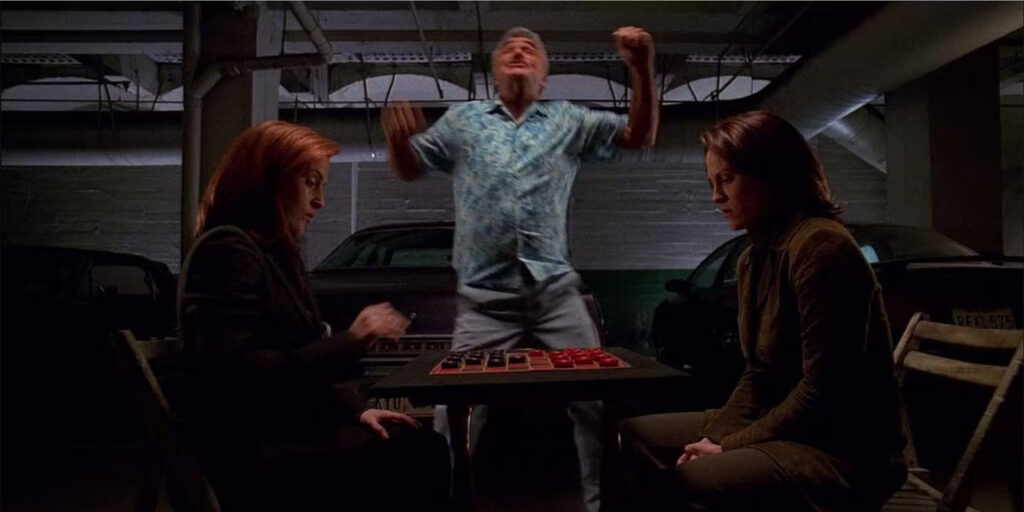
I was expecting to hate Improbable on this rewatch. It’s an episode written and directed by Chris Carter that is not only a fairly broad comedy but also deeply religious. Both of the things I’ve found Carter to execute very poorly. Not only that but it’s an episode all about numerology, which is, of course, absolute bollocks. And yet, somehow, it works. Improbable is a lot of fun and one of the more entertaining episodes of the season. All of the elements, bad on their own, equal each other out: the comedy stops the religious themes from getting too sententious or the numerology too serious, while the big ideas at play prevent the episode from becoming an all-out farce. It’s a truly bizarre mix, culminating in a musical sequence, no less.
There are many allusions to God (and the Devil) throughout this season and, with the show wrapping up, He might as well appear as an actual character. I find the portrayal of God quite fascinating, a joyous character trying to lead a dark soul away from his murderous path but unable to directly intervene. Oh, and He’s played by Burt Reynolds. The odd mix of ideas permeates everything and God’s will is left at a fascinating ambiguous middle ground between mathematical equation and serendipity, as if we can begin to grasp at the threads of something that is still ultimately unknowable. It’s a difficult balancing act, and one I felt for certain Carter wouldn’t be able to manage given the quality of his other recent efforts, but away from the mythology he’s able to deliver one last good episode.
Best Monster: The Power of Imagination from Scary Monsters (S9E14)
The appropriately-titled Scary Monsters has both the best and worst monster of the season. The onscreen monster itself is terrible: a swarm of CGI insects. Yet the idea behind the monster is fantastic. A child has such an active imagination that what he thinks about becomes real, from a monster under his bed to his mother stabbing herself to death in an attempt to remove something wriggling in her belly. It’s a dark episode with Doggett, Reyes, and another agent trapped in a snowed-in house with the boy and his father, trying to survive his imaginings, including a police officer made of jelly who Doggett punches straight through. The two things holding the episode back are the imagination of the writer, whose creations are limited, and the visual effects. But even though Scary Monsters doesn’t fully capitalise on its concept, it still has some effective sequences, most notably the opening scene where the monster the boy fears is under his bed does indeed appear under his bed. It’s also the only monster in season 9 better suited to Doggett than Mulder, where the agent’s scepticism and lack of imagination saves the day.
Worst Standalone Episode: Underneath (S9E12)
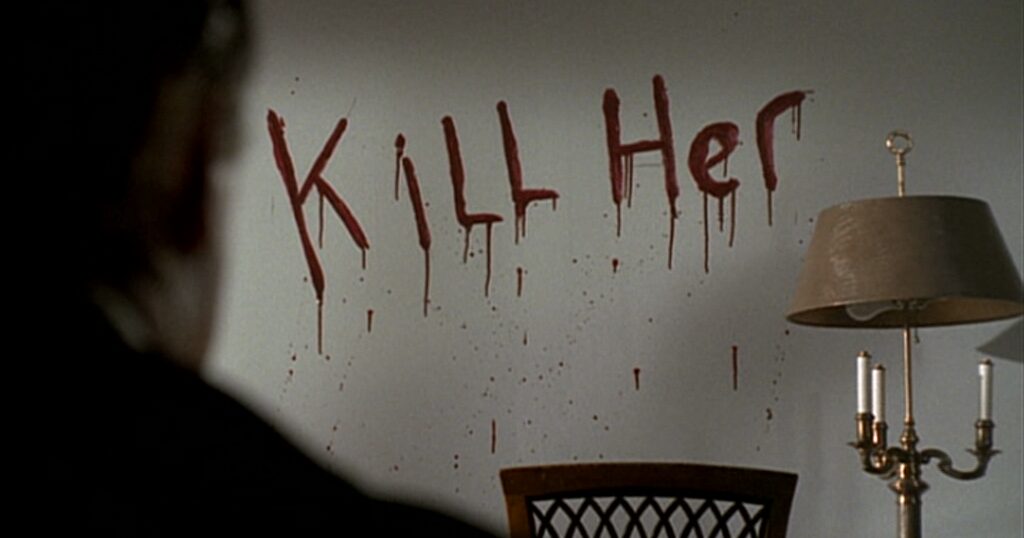
The worst episodes of the ninth season are all the mythology episodes. There might be no truly great standalones but there are no truly terrible ones either. The worst is probably Underneath, and most of its issues are down to the execution. I was shocked to read that Fox executives nearly refused to allow the episode to air because they thought it was so terrible, and while it’s bad it’s not that bad. It features a man so ashamed of his sinful thoughts that he’s buried them down until they’ve become another being entirely, born of transubstantiation, who can take over him, physically transforming him. That’s not a terrible idea but it still needs some level of mystery. Disastrously, the episode begins with a scientific explanation, about how one man can have two different DNA profiles, and works backwards from there, explaining exactly what that means. It’s a scientific answer to a question that shouldn’t have one. I miss the show treating the supernatural as unexplainable, the agents writing a report they can’t fully fathom themselves.
The character work is weak throughout the episode on all fronts. Doggett isn’t just his usual dogged self but annoyingly bull-headed, falling into a trap the writers had previously avoided. This case was the foundation of his career and it being reopened is significant for him but it’s the first episode where he’s come across as unlikable. Scully is used very poorly, taking the role that Reyes should play so that relationship can’t develop. Robert Fassl, the man who both is and isn’t the killer, isn’t anywhere near as sympathetic as the episode thinks, because he still tries to hide the crimes and cover for his other half. It’s a waste of a role for the brilliant W. Earl Brown. The conclusion is also a huge disappointment. Fassl needs to resolve his internal battle and Doggett needs to accept what is truly going on. Neither happens and the episode ends in a lame Third Man style chase through the sewers where the largely absent Reyes is the one to pull the trigger. It’s not satisfying on any level.
Best Standalone Episode: John Doe (S9E7)
John Doe is a unique episode of a show desperately in need of one. Doggett is suffering from amnesia in Mexico and has to rediscover who he is and what he has lost, not just his immediate memory but reexperience the death of his son and confront the ‘memory vampire’ who stole it. It features Doggett as a literal ‘man with no name,’ a jeans-wearing western hero. It’s a new gritty genre for the old show. There’s also a proto Breaking Bad feel about the episode: a gritty Mexican drug cartel drama written by Vince Gilligan and directed by Michael MacLaren. The look, tone, and feel is strong and fresh for the series. It maybe overdoes the over-saturation and bright lights but I’ll take an episode this season that overdoes something rather than underdoes it.
Robert Patrick is tremendous. As with last season’s strongest episode, Via Negativa, John Doe allows him to be vulnerable. He’s beaten and bloodied, distraught over his son, and Patrick is brilliant at this but rarely gets a chance to show it. And, of course, he’s tough when he needs to be, becoming the western action star. This story would only work with Doggett at the helm. It would make for a terrible Mulder episode. The one aspect of John’s backstory that didn’t work last season was the death of his son but this is the episode that finally makes it click into place. It once felt too distant, too cliché, but now the audience experiences the pain of it along with Doggett as he remembers it as if for the first time.
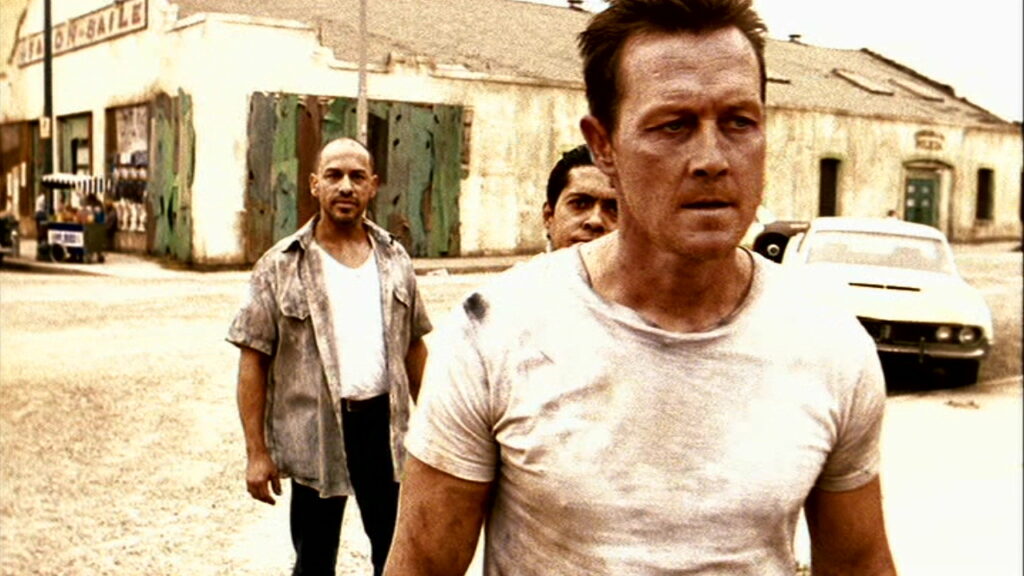
Usually cutting away from John and the action of the episode would be bad, and the Scully scenes are a notable weak point, but the Reyes investigation is solid. We get to see a new side to her, the tenacious detective, and her dialogue is uncharacteristically strong. The episode makes them feel like partners for the first time. As with Doggett’s memory, the episode allows the show to forget what came before, any convoluted character drama dragging down season nine, and deliver a stripped back but emotionally rich and effective episode.
Worst Mythology Episode: Nothing Important Happened Today (S9E1)
Immediately the goodwill and energy that revived the show in season 8 vaporises. Last season did the impossible and got me excited for a potential Mulder & Scully-less show, proved that there was still life in series, but immediately this new X-Files falls flat. It’s dead on arrival. The episode begins with characters waking up groggy and that’s how the show feels too. There’s no energy, everything feels tired, within the show and without. Mulder is gone with little explanation, he’s on the run because his life is in danger, and the show itself acts disappointed in that revelation. It should be convincing us the new characters are great, worthy to lead the show, but the writers can’t convince even themselves of that.
All the characters act defeated, wallowing around FBI offices and contemplating quitting. They should be gearing up for new adventures. This season premiere is the most important episode in a long time, vital to show that The X-Files can thrive. Instead, it shows that it can’t even survive. Reyes gets her dream assignment and immediately wants to leave. That’s the worst way to start the season. Monica can be an okay character when out on cases but not in these mythology episodes, forced to play office politics. The writers have to give her a relationship with new character FBI Assistant Director Brad Folmer to give her some investment in the now lifeless conspiracy but there’s no chemistry or tension.
The plot itself is incomprehensible and so very dull. The point of the season 8 finale was that Scully’s baby was normal, yet now, to keep her in the show and the story unnaturally moving, the baby has magic powers. There’s a female super solider killing people and some conspiracy about tainting water supplies but what that actually means or why I should care is a mystery. As with much of the season 8 premiere, this first episode is mostly set in the FBI offices with people arguing over desks. It worked then due to understandable character motivations and genuine emotion but the writing here is so poor and undefined I barely understand anyone’s point of view; the character conflict is just to continue stretching the show out long after the story has depleted. Nothing Important Happened Today is a humourless, unexciting, and bland beginning to the season. Start as you mean to go on, I guess.
Even Worse Mythology Episode: William (S9E16)
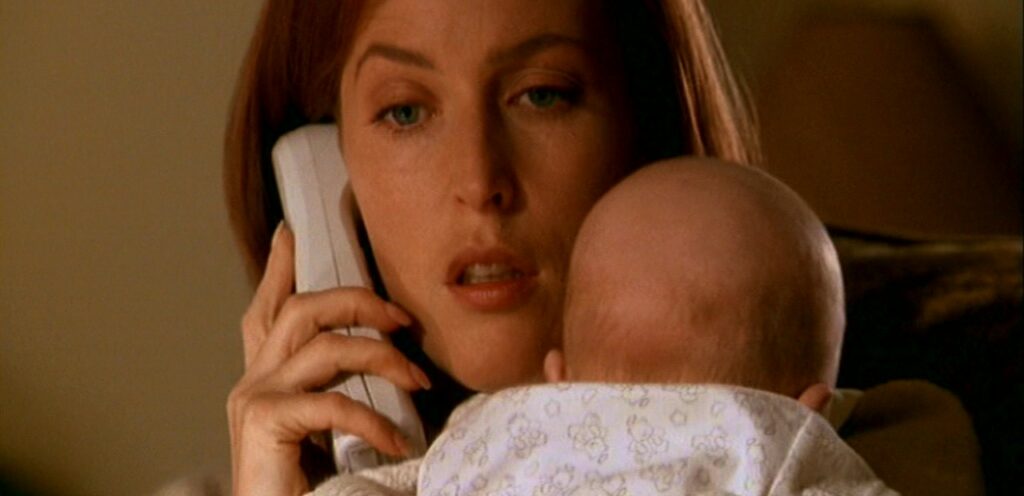
I wrote about Nothing Important Happened Today thinking there couldn’t possibly be a worse episode, that it was fine to write it up as the worst episode before finishing the whole season, expecting to at least half-like an episode enough to name it as the best. That episode never came. The mythology gets worse. At first I thought William might be the best episode because it’s the only one with elements I enjoyed, it was holding my attention, but that makes it hurt even more when it all falls apart. And fall apart it does. There are highlights, such as David Duchovny returning to direct and Chris Owens delivering a great guest performance, as always, but it’s a mystery episode with a terrible mystery. An obtusely-enigmatic scarred man appears and for 30-minutes the episode tries to make us believe it’s Mulder. Of course it’s not Mulder, it’s Jeffrey Spender. The episode wastes so much time trying to convince us of something that obviously isn’t true. And William isn’t an episode that has time to waste.
This is the episode that concludes the William storyline, at least until the revival seasons. Yet it’s so concerned with Spender’s return, and the lingering absence of Mulder, that the character it should be about feels like an afterthought. It begins with William being adopted and then flashes back a week. The episode needs to be about Scully’s decision but it’s not. That only comes up at the very end, and the drama is rushed, if barely there at all. We need to see Scully reckon with the choice. Instead, William presents the case for why the baby shouldn’t be sent away. He’s cured of his alien powers so why is now the time to abandon him? The episode makes the opposite point than it should. Scully makes up her mind in one scene with no debate and we don’t even seen a goodbye. The baby the last two seasons have revolved around is unceremoniously sent away, the storyline all for nought, and Scully unbelievable in her actions. Like the alien invasion, baby William has huge implications that are never dealt with. Instead of his story being resolved, he’s simply removed and the writers think that counts as closure.
Biggest Disappointment: The Truth (S9E19 & E20)
The final episode of the original run of The X-Files perfectly captures the issue the show was always going to run into. So, as the episode title suggests, our heroes have discovered ‘the truth’. What are they and the show going to do with it? Absolutely nothing. Structured as a court room drama that becomes a clip show, it’s as if Chris Carter watched the loathed Seinfeld finale and thought that was the best way to end a TV show. The Truth isn’t terrible but it’s not good either. It’s certainly one of the more watchable episodes of the season. Mulder’s reappearance does bring some life back into the show but as soon as he shows up all pretence that the series ever cared about Doggett and Reyes disappears. This is a Mulder and Scully episode and Doggett and Reyes are limited in their appearance and unceremoniously dropped. They don’t get a final moment and the X-Files are shuttered once more. Doggett and Reyes may have briefly inherited the series but now it’s brutally clear that their services are no longer required. Doggett in particular deserved better.
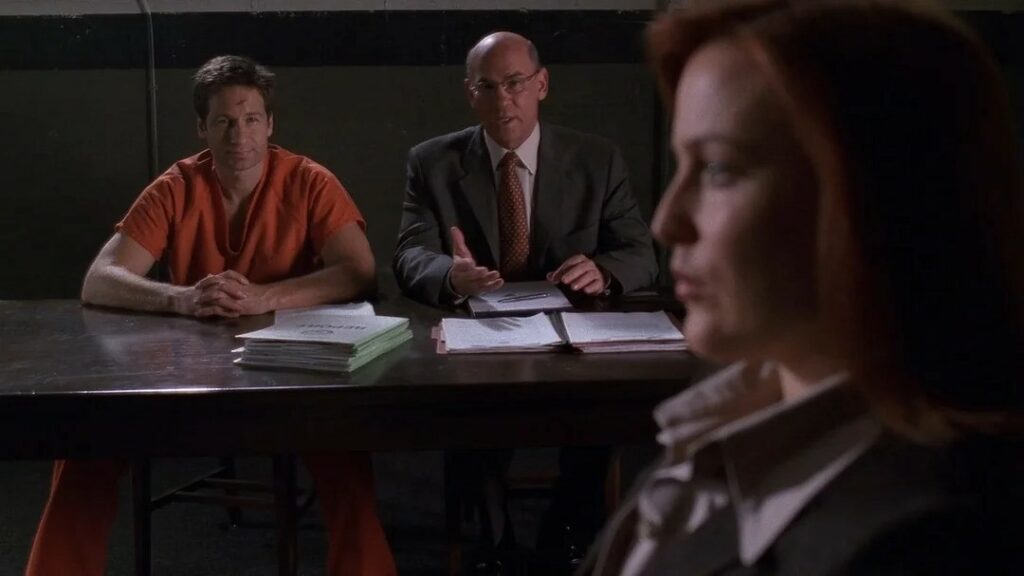
The 90-minute finale spends an hour on a useless trial. Mulder is tried for murder but manages to pivot so essentially the truth itself is on trial. Yet throughout we know nothing will come of it. He wants to expose the truth but to whom and why? Carter writes a few good lines but nothing said has much weight. It’s all a farce, more so than it’s meant to be as a show trial. All it does is recap the mythology. This finale is not an ending but a look back, bringing everything together, just like the first movie did. Perhaps the episode’s biggest strength is making the mythology seem like it almost makes sense. It’s notable that most of the clips shown are from the first six seasons, proving that the mythology ended there and has been limping on ever since, never able to get going again.
The Cigarette-Smoking Man is back because why not. Then he’s killed again, definitively, until he’s suddenly alive again, but that’s a rant for another time. Chris Carter tries to create the sense of an ending by bringing back a bunch of characters, including the ghosts of dead ones. The ghosts of the Lone Gunmen are a weak point because they warn against a heroic death, which undermines theirs. But really the ghosts are a stand-in for God, and the episode becomes very religious as it reaches its conclusion. I like elements of the final scene, mainly how it’s a quiet and intimate moment between Mulder and Scully. But I can’t help feeling it’s a weaker version of the season 8 finale and it becomes far too preachy. Mulder essentially says that humans have no hope against the alien threat unless they accept something larger than themselves, while fondling Scully’s cross necklace. That’s how the show ends, with Mulder’s crusade and belief in aliens shifting from atheism to a belief in God being the only way to survive. Carter has always been a religious writer but he doubled down these last few seasons.
The real truth is that The X-Files is a show incapable of a conclusion. It’s a mystery show about uncovering what’s happening rather than stopping it. What truly is the endgame of the series, once everything has been revealed? A big alien invasion action movie where Mulder and Scully save the Earth? No way. The 1998 movie had a scene with Mulder pissing on a poster for Independence Day as a way to mock that idea. It’s fine for the show to be like that but The X-Files isn’t honest about it. It tricks the audience into thinking a grand conclusion is coming. This episode even puts a date on the invasion, December 22nd 2012, punting the real ending a decade down the road. There’s no doubt in my mind that Chris Carter knew he was never going to write that invasion story. By the time the next movie is ready it’s a standalone monster-of-the-week case and then the invasion is hand waved away in the revival, where the four ‘My Struggle’ mythology episodes are truly abysmal television and make The Truth looks like a masterpiece.
Five Worst Episodes:
5. Nothing Important Happened Today II (S9E2)
4. Provenance (S9E9)
3. Providence (S9E10)
2. Nothing Important Happened Today (S9E1)
1. William (S9E16)
Five Best Episodes:
5. Improbable (S9E13)
4. 4-D (S9E4)
3. Release (S9E17)
2. Audrey Pauley (S9E11)
1. John Doe (S9E7)
And with that The X-Files are closed, and for many years it seemed like it was permanent. Yet still to come is the 2008 movie, a much detested instalment that I have positive memories of, and two shorter revival seasons from 2016 and 2018. You can expect articles exploring those in the near future.




